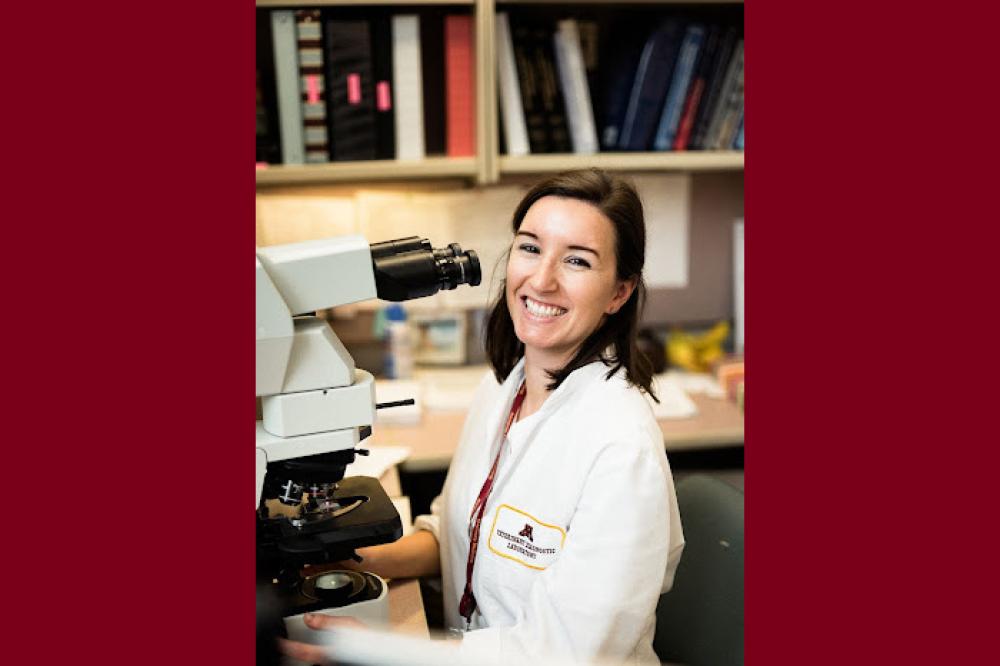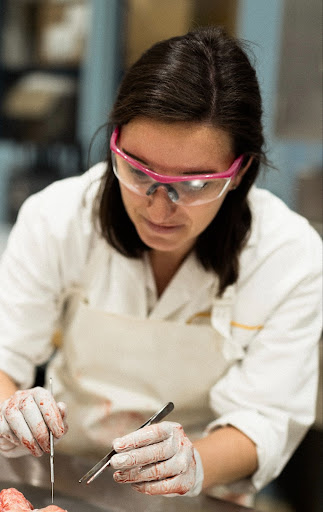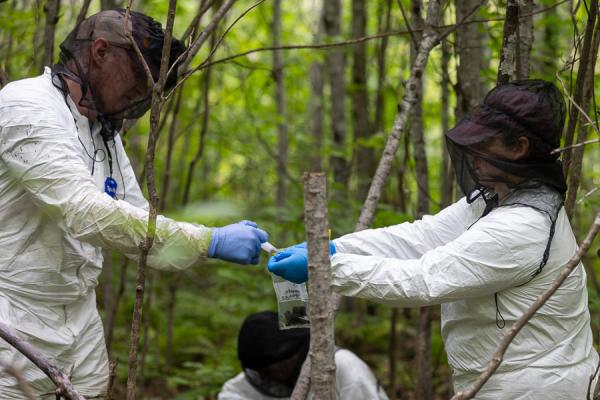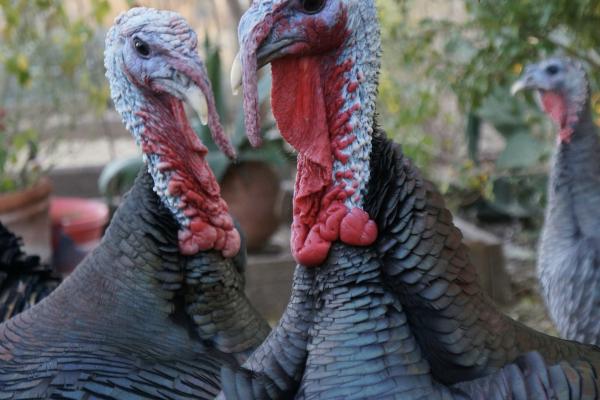Alexandra Armstrong receives NIH Early Career award to study Legg-Calvé-Perthes disease
October 26, 2023

Alexandra Armstrong received a 5-year $662,000 Career Development award (K01) from the National Institutes of Health to examine the contribution of growth cartilage to recovery and disease progression in Legg-Calvé-Perthes disease (LCPD). LCPD is a condition that affects the hip joint, in which the femur doesn't get enough blood supply, so it can become weak and start to break down. This makes it lose its smooth shape and can lead to pain and problems with movement in the hip. In children, the progression of the disease–and the impact of any treatment–are modulated by the fact that their bones are still developing. But little is known about exactly how tissues related to bone growth impact the trajectory of the disease.
To address this critical gap, Armstrong will use a piglet model of LCPD to identify genes within the growth cartilage associated with growth disturbances. She will also examine how tissues related to growth respond to transphyseal drilling, a treatment that may benefit children with growth disturbances resulting from LCPD.

By analyzing the changes that underlie tissue damage observed on the microscopic level and with MRI, Armstrong’s research will improve the understanding of the biology of the disease and determine whether a treatment that is effective in adults might be appropriate in children with LCPD.
The K01 is an early career award designed to provide an “intensive, supervised, research and career development experience for nonclinical, doctoral researchers as they transition to independent research careers.” For Armstrong, this means having the resources to take her research to the next level. She describes, “This award provides key financial support and protected time for me to expand my expertise in a novel technique, spatial genomics, that might provide more insight into what is happening on the cellular level when the growth cartilage is injured. I am excited to apply these methods in future studies unraveling additional important pediatric diseases, like hip dysplasia, which also affects dogs.”
A number of other CVM faculty have received K01 awards, including Eva Furrow, Steve Friedenberg, Ferenc Toth, Casey Johnson, and most recently, Kelly Makielski. These awards provide important opportunities for individual researchers to advance their careers, and they also strengthen the college research enterprise. As Alonso Guedes, Interim Dean for Research, describes, “The K01 and career development awards have been instrumental in enhancing our research ecosystem by helping us attract and retain top research talent, foster diversity, and contribute to research productivity, ultimately strengthening the college's ability to make valuable contributions to animals, humans, and the environment.”


